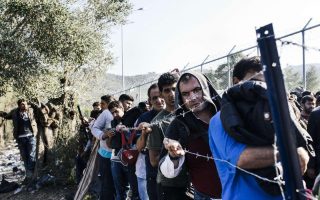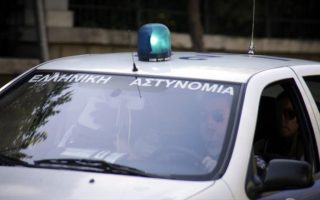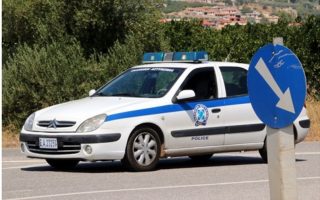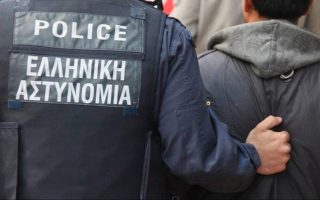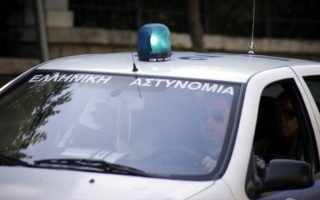Interpol seeks public help in tracking migrant smugglers
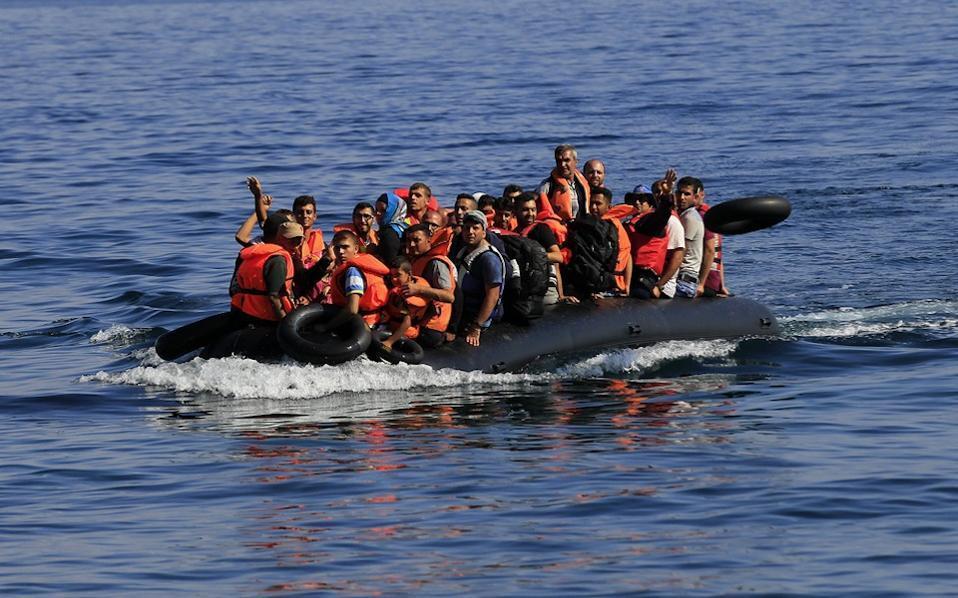
Interpol is asking the public to help find 10 suspected migrant smugglers, an unusual call issued Thursday that reflects just how tough it is to catch those who prey on people fleeing war or poverty.
The diverse nationalities of the 10 – who include people from Romania, Afghanistan and Azerbaijan – highlights the globe-spanning nature of the criminal networks involved in people smuggling, which has soared with the influx of hundreds of thousands of migrants heading to Europe, many fleeing Syria's war. The public call reflects the difficulty in tracking down people smugglers who can range from invisible bosses to boat drivers.
So far, 26 people have been arrested in the Interpol-led Operation Infra Hydra, which is seeking the arrest of 180 people wanted by 31 countries.
Thursday's appeal by the international police organization, based in Lyon, France, came after nearly a year of investigations by two dozen countries and arrests in May that included a Moroccan suspected of selling Belgian identity cards to Syrians and some in an Albanian organized crime group who were charging migrants nearly 14,000 euros ($15,900) each to travel across the English Channel by boat.
A joint report last month by Europol and Interpol estimated that 90 percent of migrants entering the European Union have had their trips facilitated by smugglers, who earned $5 billion to $6 million in revenue last year.
Among those being sought is Mariana Crucerescu, convicted of heading a Romanian organized crime group that charged 3,000 euros ($3,400) per person to smuggle people through Hungarian and Austrian border points. Another is Afghan national Jan Abdullah, who allegedly offered full services, including "how to" guides and fake documents along with transport in the crime group he set up.
Then there is Tajeddin Aliyev, former head of passenger control at the international airport in Baku, Azerbaijan. He allegedly provided counterfeit airline tickets.
Michael O'Connell, director of operational support and analysis for Interpol, said no one nationality predominated among the criminal networks profiting from those fleeing war and poverty – and no smuggler was too small-time to go after.
Take Kolyo Georgiev Kolev, a Bulgarian suspected of illegally transporting nine Afghans from Bulgaria to Austria – two of whom were killed when the truck overturned in Hungary.
"For each of those nine individuals, there can be an absolutely harrowing personal story behind them," O'Connell said by telephone. "So whether it's one, whether it's nine, (or) the multiple hundreds of thousands we're seeing facilitated and trafficked into Europe, every single one of those people has a life and value that has to be respected."
The rights of the accused also must be respected, including privacy, limiting the information that Interpol was able to make public, O'Connell said.
Concern that good summer weather and calm seas may spur the number of illegal migrants trying to cross the Mediterranean also prompted Interpol to reach out to the public, O'Connell said.
An uptick in people smuggling from chaotic Libya is already being noticed. The high-risk Mediterranean crossing is one of the main routes to Europe, and gaining new favor with smugglers after a European Union migrant accord with Turkey and tougher policing in Greece that are making getting into Europe more difficult. [AP]
